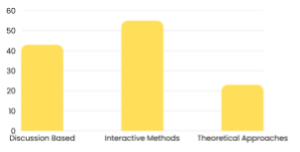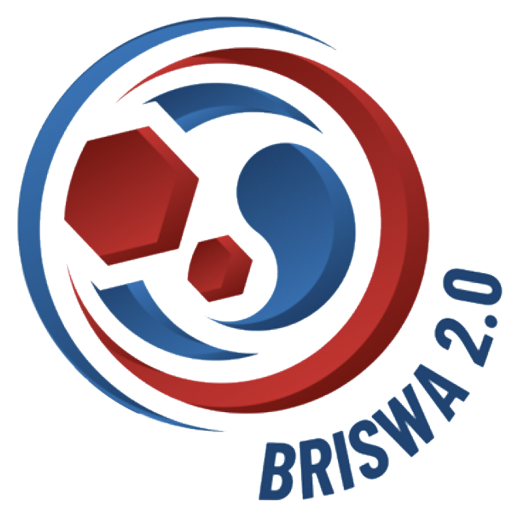INSIGHTS FROM THE BRISWA 2.0 SURVEY
We are excited to share the significant progress of our project and the initial findings from the BRISWA 2.0 survey. In-depth analysis of the data collected is providing crucial insights into the most effective methodologies for addressing racism in educational and sporting contexts. An analysis of word frequency in responses related to teaching strategies revealed clear trends:

- Discussion-Based Methods: There was a clear preference for open dialogue and conversation as a central approach to teaching about racism. This finding highlights the invaluable value of active engagement, critical thinking, and the opportunity to express and compare ideas in a safe and inclusive environment. Discussion, in fact, promotes deeper understanding and greater empathy.
- Interactive Methods: Participatory and engaging teaching techniques were highlighted as an equally important strategy. Interactivity, which can include role-playing, simulations or group activities, makes learning more dynamic and allows individuals to directly experience the dynamics and consequences of racism, fostering a change in perspective.
- Theoretical Approaches: Although mentioned less frequently than more dynamic methods, structured academic frameworks remain an integral part of the conversation. These approaches offer the depth and rigour necessary to understand the historical, social, and cultural roots of racism, providing a solid foundation on which to build awareness and understanding.
These preliminary findings unequivocally underscore the importance of adopting dynamic and dialogic educational strategies to promote authentic understanding and effectively address racism. It is not just about conveying information, but about creating an environment that encourages reflection, debate, and interaction.
We are confident that these initial findings will significantly guide the development of usable tools and materials that will provide concrete support to educators and students. We are committed to transforming this data into practical resources that can make a difference in the daily fight against all forms of discrimination in sport.

